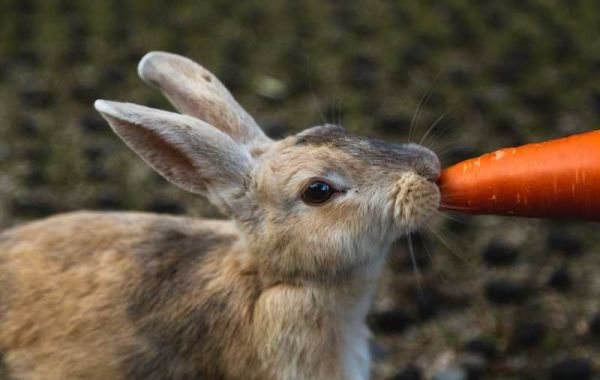Did you know that rabbits are the third most popular pet in the world? Rabbit owners expect and should have the same veterinary care for rabbits as any other animals. The correct pet rabbit care also requires knowledge of a practical and concise guide to health, growth, and diseases. Rabbits are unique pets, so you have to fulfill specific needs for them to have a long, happy, and healthy life. That means that besides the facilities you create for a seif environment, you need to know what time of the day you must choose for the Timothy Hay for rabbits.
You can house rabbits indoors in protected rooms or a mini apartment of bunnies or build a larger cage. If fenced, the space dedicated to your rabbits must be big enough for them to jump around and play, with the mention that they will still have to go away from the cage for a few hours daily. Please ensure the rabbit's central location is close to you because your pet will feel lonely; therefore, keeping it inside your room would be best. Rabbits can get bored quickly. Not only do they need a place to exercise, but also mental stimulation.
Timothy Hay for Rabbits as Food Recommendations
A rabbit's diet should consist mainly of Timothy Hay for rabbits, which should always be provided. Baby rabbits are recommended to opt for alfalfa, while adults need grass or oat hay. It is best to go for a giant hay feeder, which is helpful because you can provide your rabbit with more food. Supplement rabbit hay with pellets, fresh vegetables, and fresh water daily. Rabbits love eating hay; you could even say that this food is sort of a delicacy for them, but besides this aspect, hay is a vital necessity for the rabbit’s digestive system.
The fiber in hay is essential for adequately functioning the rabbit's digestive tract. If you notice that your rabbit is not eating the hay you offer, it is necessary to identify the reason behind this behavior. If you didn't know this by now, rabbits are good at hiding any sign of illness. Care should be taken to ensure that your rabbit eats, drinks, and defecates daily. If you feel that something is different in your rabbit's behavior, you should go to the vet. Even if your pet isn't ill, you should regularly go to the vet for a routine check-up to ensure nothing’s wrong.
The Rabbit Won't Eat Hay; What Can You Do?
The rabbit is a strict herbivore. A rabbit's food must fulfill two requirements: it must correspond to a strictly herbivorous diet and adapt to how it chews to wear down its ever-growing teeth, especially the incisors. Its digestive system does not tolerate low-fiber foods, which slow down its transit, while hay is quickly eliminated. Did you know that rabbits that live in the wild chew grass with horizontal jaw movements? They do so to protect their teeth. Timothy Hay for rabbits does this ideally, while pellets force the rabbit to make short, vertical movements that don't grind its teeth.
It is essential to establish good feeding habits from the beginning, from when the rabbit is brought home, encouraging the animal to always eat hay. Like humans, rabbits naturally have a greater appetite for foods that are often too high in calories and not in nutrients. For example, if your rabbit eats pellets, it will give up hay to the detriment of its health. How do you know if you got some quality hay? The first sign of this is its freshness because even the best hay is not attractive to animals once it is old and too dry.
Avoid dusty and irritating hay or hay that is too wet, which can mold. There are many different types of hay, and while some are suitable for all rabbits, others are not recommended. Since this is the most critical food source, every precaution should be taken to make the best choice regarding hay. Timothy Hay for rabbits and meadow grass hay, made from only one type of grass, are suitable for all rabbits, regardless of age or shape. Alfalfa hay contains a lot of calcium the rabbit needs to grow.
Check Your Rabbit's Teeth
After eight months, it should be excluded entirely from the diet because the adult body does not manage calcium intake very well. You can choose pasture hay for an adult rabbit, but you must watch closely if your rabbit develops urinary problems. In this case, select Timothy or orchardgrass hay. Good dental health is crucial in rabbits who spend many hours chewing. Try to go to the vet 1-2 times a year to check if the rabbit has a loose tooth, a developing abscess, or any other pathology that seems bothering him.
If your rabbit suffers from dental problems, you should cut his hay into small pieces to make his recovery more manageable. The first thing you should do is ensure your rabbit has access to Timothy Hay for rabbits at all times. If he turns to pellets or seeds to satisfy his hunger, he won't want to eat hay afterward. Hay must be easily accessible to the rabbit. The hay rack or bag should be placed conveniently so the rabbit does not have to try to get it, preferably near the litter, as rabbits love to fidget while eating.
Rabbits Also Need Space to Run and Explore
Besides the proper food, you also need to create a safe space for your bunny and to protect your belongings, you will need to restrict the bunny area properly. All wires should be covered with plastic sleeves or flexible tubing or raised above the rabbit's visual environment. It would help if you blocked off certain areas because rabbits like to chew on the underside of beds, items on shelves, house plants, and more. The rabbit will try to chew everything within reach. Rabbits have a natural inclination for physical needs in only one area.
Take advantage of this by installing a medium-sized cat box or shallow storage basket near the food, water, and hay feeder bowls. Place a thin layer of rabbit-safe recycled newspaper litter in the bottom of the litter box. Then, put hay on top of the bedding. Rabbits like to eat Timothy Hay for rabbits and defecate simultaneously, encouraging good litter box habits. Rabbits are naturally clean animals and bathe frequently. But it still needs to be taken care of regularly. Brushing your rabbit is essential to remove excess fur.








